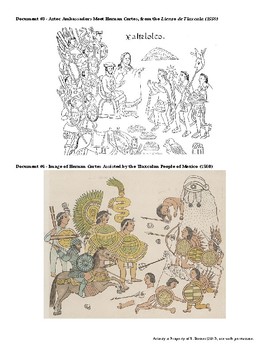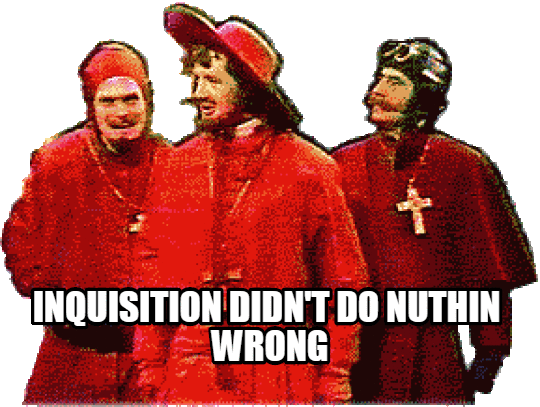

So to begin US History, we're not going to talk about the United States or this guy, we're going to talk about the people who lived here before any Europeans showed up.

Sorry, we can be a little bit self-aggrandizing sometimes here in America. By the way, this globe reflects the fact that I believe that Alaskan statehood is illegitimate! In fact, we're going to call this whole show "US History", but inevitably, it's going to involve other parts of the world and also, not to brag, a small part of the moon. I mean, we're talking about the sixteenth century today when this was neither 'united' nor 'states'. No, Stan, that's not going to work, actually. Hi, I'm John Green and this is Crash Course US History. The story of their rocky relations has been called the Black Legend. John teaches you about early Spanish explorers, settlements, and what happened when they didn't get along with the indigenous people.

The Spanish were definitely not peaceful colonizers, but what colonizers are peaceful? Colonization pretty much always results in an antagonistic relationship with the locals. The Spanish have a long history with the natives of the Americas, and not all of it was positive. That means we start with the first sustained European settlement in North America, and that means the Spanish. This is a history class, not archaeology, so we're mainly going to cover written history. In episode 1, John talks about the Native Americans who lived in what is now the US prior to European contact. But, like it or not, the United States has probably meddled in your country to some degree in the last 236 years or so, and that means US History is relevant all over the world. Cross-cultural and interdisciplinary, ambitious in its chronological sweep, and elegant in its interpretation of literary and visual works, DeGuzmán’s book leads us to a powerful new understanding of the nature-and history-of American ethnicity.In which John Green kicks off Crash Course US History! Why, you may ask, are we covering US History, and not more World History, or the history of some other country, or the very specific history of your home region? Well, the reasons are many. The symbolic power of Spain in the American imagination, DeGuzmán argues, is not just a legacy of that nation’s colonial presence in the Americas it lives on as well in the “blackness” of Spain and Spaniards-in the assigning of people of Spanish origin to an “off-white” racial category that reserves the designation of white for Anglo-Americans.īy demonstrating how the Anglo-American imagination needs Spain and Spaniards as figures of attraction and repulsion, DeGuzmán makes a compelling and illuminating case for treating Spain as the imperial alter ego of the United States.

Surveying a broad range of texts and images, from Poe’s “William Wilson” and John Singer Sargent’s El Jaleo to Richard Wright’s “Pagan Spain” and Kathy Acker’s Don Quixote, Spain’s Long Shadow shows how the creation of Anglo-American ethnicity as specifically American has depended on the casting of Spain as a colonial alter ego. England and the Netherlands, Spain’s imperial rivals of the sixteenth and seventeenth centuries, imagined Spain as a land of cruel and degenerate barbarians of la leyenda negra (the Black Legend), in league with the powers of “blackest darkness” and driven by “dark motives.” In Spain’s Long Shadow, María DeGuzmán explores how this convenient demonization made its way into American culture-and proved essential to the construction of whiteness.ĭeGuzmán’s work reaches from the late eighteenth century-in the wake of the American Revolution-to the present.


 0 kommentar(er)
0 kommentar(er)
